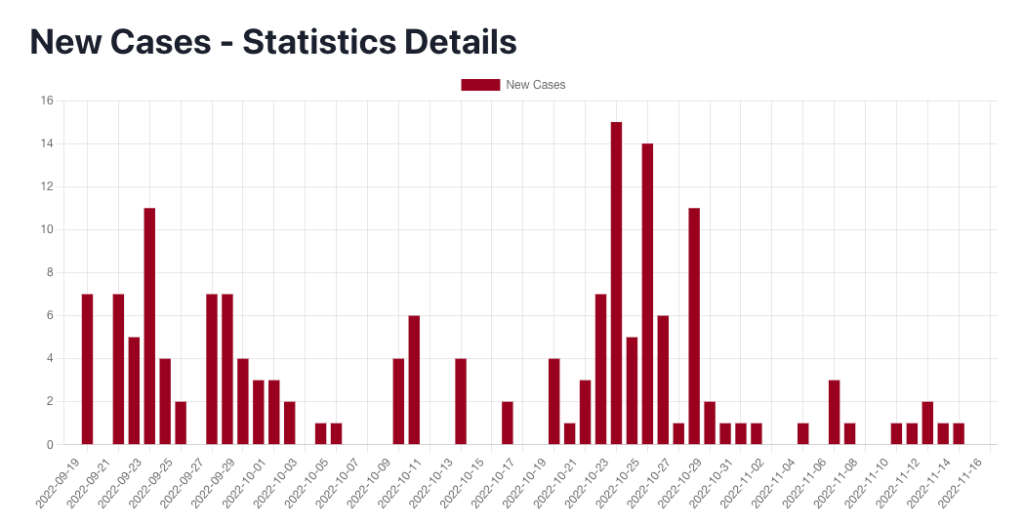
A potential Ebola case is being investigated in Colchester, England, after a patient who had recently traveled to Africa began showing symptoms of the deadly virus. Health officials temporarily closed part of Colchester Hospital as they work to determine whether the patient has Ebola and, if so, how he or she contracted it.
The patient, who recently traveled to an affected area, is being treated in isolation. Officials said that the temporary closure of part of the facility was to deal with an “infection control issue.”
Officials at the UK Health Security Agency said that it’s routine to test unwell returning travelers for a variety of infectious diseases. Those infectious diseases included other hemorrhagic fevers (fevers that also involve bleeding) such as Lassa fever.
Prepare now! Protect your home and cars againts EMP, solar flare and lightnings…
The hospital was deep-cleaned and then reopened several hours after it was first closed. Colchester Hospital is a district general hospital located in Colchester, Essex. It is managed by East Suffolk and North Essex NHS Foundation Trust, and is 70 miles (113 km) away from central London – just 90 minutes away via the A120 and M11 highways…
The Telegraph adds:
“If confirmed, this would be the first Ebola case detected in Britain since 2014, when two people were infected in West Africa before travelling to the UK – including Pauline Cafferkey, a Scottish nurse working to curb the outbreak, which killed 11,000 people. Both of those cases recovered.
“This would be the first case of the new Sudan strain of the virus, for which there is no approved vaccine.“
Because there are no direct flights to the UK from Kampala, any infected travelers who make the trip could expose passengers on multiple planes and airports in multiple countries as they make the 11-hour trip between Entebbe International Airport to any British destination.
The current outbreak is spreading within Uganda

The current Ebola outbreak has so far been contained to Uganda, but several neighboring countries have tightened border restrictions and increased testing to ensure the virus does not spread further.
Prepare now! You will never go without electricity with this portable power station!
Two districts in Uganda are also in lockdown. The Mubbende and Kassanda districts have seen their lockdown times double from 21 days to 42 days in an effort to prevent the disease from spreading.
Uganda’s capital of Kampala, which has an international airport, has not been locked down. Recently, cases have spread from the capital to other regions of the country, such as Jinja, near the Kenyan border.
Although officials are publicly projecting confidence that containment is well underway, leaked government documents show that the Ugandan government expects an explosion in Ebola cases. They anticipate thousands of infections and 500 deaths by May.
These projections, if accurate, would make the current outbreak the deadliest in Uganda’s history.
PPE shortages and limited food supplies for those in quarantine appear to be contributing to the increase in cases.
If the leaked projections hold, this will be the third deadliest Ebola outbreak in history. The announcement that schools will be closing nationwide in Uganda also underscores the growing intensity of the situation.
What is Ebola?
Ebola virus disease (EVD) is a serious and deadly virus that affects humans and primates. EVD is caused by the Ebola virus. The virus is spread through contact with the blood or body fluids of an infected person and can lead to death in 25-90% of cases.
Early symptoms include fever, muscle pain, and headaches, followed by vomiting, diarrhea, and internal and external bleeding. Death typically occurs 6-16 days after symptoms appear. There is no specific treatment for Ebola at this time; however early diagnosis and supportive care can improve the chances of survival.
Prepare now! Stock up on Iodine tablets for the next nuclear disaster…
The Ebola virus originated from fruit bats from the Pteropodidae family. These bats are called the “natural reservoir” of the disease. Non-human primates are known to be susceptible to the virus but they develop severe fatal illnesses when infected which limits viral circulation within their populations. [Ebola Cases, Sun, Telegraph]


